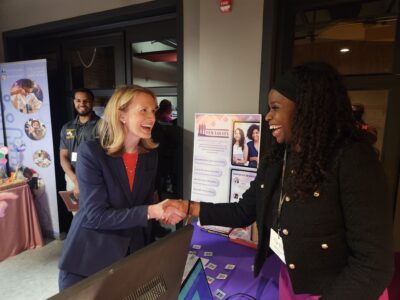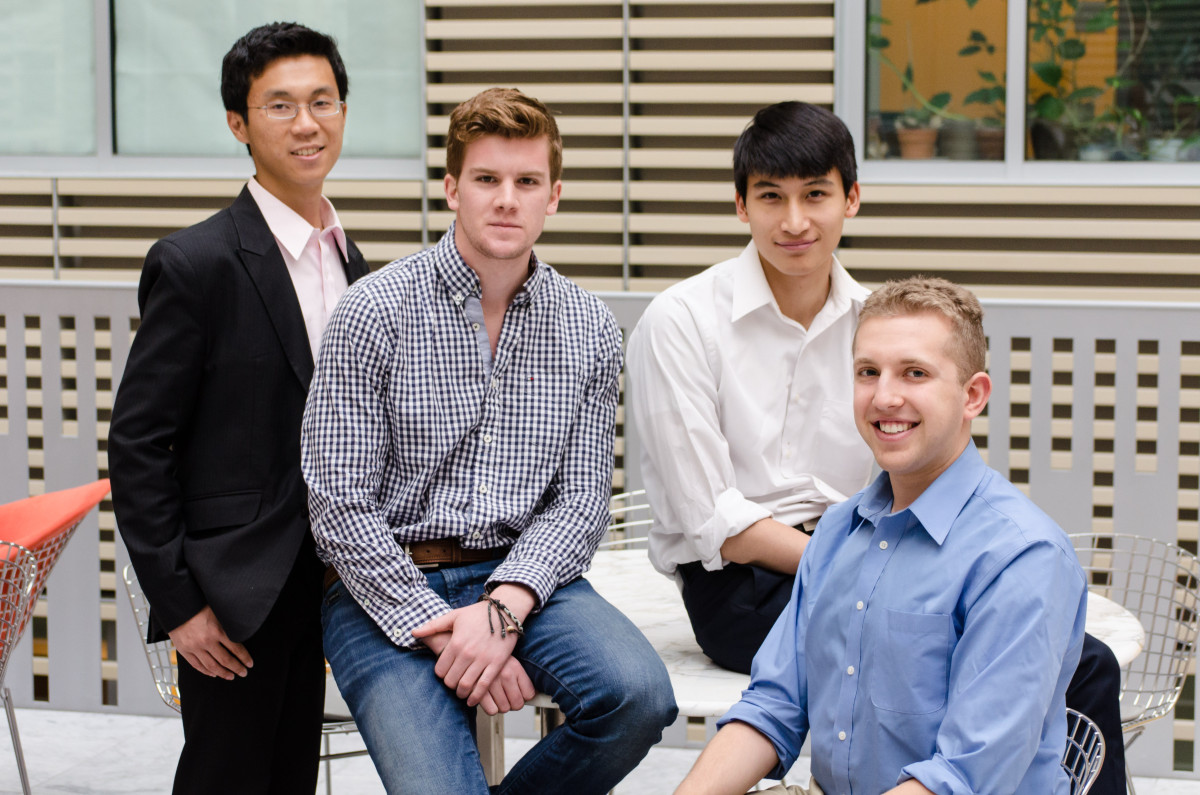For 150 years, the way cancer specialists looked at biopsies didn’t change much. Specialists would gather around a microscope, and analyze slides of showing tissue specimens.
“That’s ridiculous,” says Johns Hopkins University biomedical engineering student David West. “There’s no way it should be done that way in 2015.”
There are a couple of reasons West thinks that way.
First, there’s the image of, say, 16 pathologists gathered around a single microscope, talking to each other. While it might seem kind of comical, the mixed results that this system produced were actually detrimental in their effort to determine a definitive diagnosis.
“When a pathologist looks at a slide, they agree with each other about 55 percent of the time,” West said. “The other 45 percent of the time, they’re disagreeing on results. What we can do is we can use computers and we can get it right every time.”
As he finishes his undergraduate studies, West is also focusing his attention on running the startup he founded. Proscia recently released its first product, which makes biopsy images available digitally, allows them to be shared between researchers and provides additional levels of data analysis from the slides.
Over the last several years, hospitals have begun to use digital scanners to create biopsy images.
“These biopsies are so large that [hospitals] can’t even really handle them with their own IT infrastructure,” West said.
Proscia provides that storage. With 100 million biopsy images available, the startup is also making slides available on the cloud so researchers can compare slides, and reference what already exists.
The availability of the slides digitally has also left open a new opportunity to look at more data.
West said the slides present the opportunity to look at “billions of data points” from biopsy images. Using those images, Proscia identifies a “tissue signature.” From there, the company can create data categories to group the slides and analyze them.
“Every new image that comes into our platform, the smarter it gets,” he said.
The company has already initiated partnerships with medical centers at Johns Hopkins, Vanderbilt and the University of Pennsylvania to begin using the system.
The company currently has a nine-member team, mixed between full-time and part-time as many are students looking to finish their studies.
West is finishing up studies at JHU early to focus on the company full-time. Over the summer, the team will be split between Baltimore and Philadelphia.
From there, the startup’s future in Baltimore is uncertain.
West said the company has benefitted from the network Hopkins provided and he’s also been involved in Hopkins’ Innovation Factory. But like many college students reaching the end of their studies, he is open to the fact that opportunities could arise elsewhere.
In the future, Proscia plans to make money by charging hospitals for use of the system. Right now, the company is raising a $400,000 seed round to fund growth and secure the necessary intellectual property.
Like many health-related companies, Proscia has had to take extra time in building the system to make sure it is compliant with the healthcare system, including the patient privacy laws governed by HIPAA, and able to integrate with Electronic Medical Records.
But with partnerships already in place and the product launched, the company doesn’t appear to be slowed down too much.
“There’s a little bit of red tape, but for the most part I would say it’s more like yellow caution tape,” he said.
Join the conversation!
Find news, events, jobs and people who share your interests on Technical.ly's open community Slack

Baltimore daily roundup: Data collection for community empowerment; UMD awards its innovations; chatting with Zara the AI bot

Baltimore daily roundup: Film fest spotlights cinema's immersive frontier; over $1M for a wellness startup; $2B to rebuild the Key Bridge

Baltimore daily roundup: 20 people building Baltimore's innovation community; a local startup's $15K win; the USMC's new tech office


